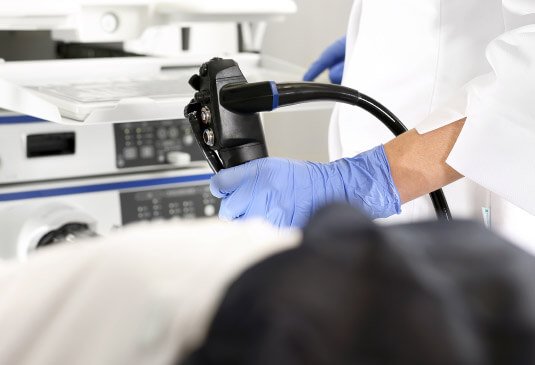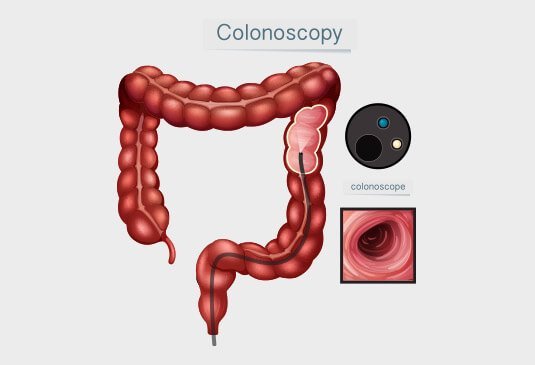
All You Need To Know About Colonoscopy
Colonoscopy is a test of the colon and rectum that is performed to detect certain abnormalities that may have developed in the colon or rectum in the early stages. It usually takes less than an hour. During this procedure, the doctor inserts a long, tubular flexible instrument called scope fitted with a camera through the rectum to understand the conditions that are causing discomfort. It bends through the colon walls and blows air in it to make it easier for the doctor to see.
Some of the conditions that may require this test are inflammatory bowel disease, Crohn’s disease, colorectal cancer, etc.
This procedure is recommended for certain conditions such as:
- To investigate intestinal signs and symptoms: This may include symptoms such as abdominal pain, rectal bleeding, chronic constipation, chronic diarrhea, and other intestinal problems.
- To screen for colon cancer
- To screen for polyps: If a patient has a history of previous polyps, the doctor may recommend a follow-up colonoscopy to screen for any additional polyps.
It is the most accurate test for the determination of colon cancer. People above the ages of 50 should routinely undergo this procedure.









 Appointment
Appointment WhatsApp
WhatsApp Call
Call More
More

